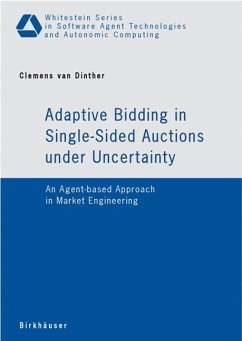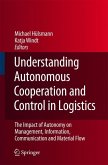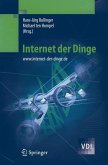In the last years electronic markets, especially online auctions, have become very popular and received more and more attention in both, business (B2B) as well as in public practice (B2C and C2C). Science, however, is still far from having studied all phenomena and effects which can be observed on electronic markets. Apart from theoretic analysis, other approaches are necessary to evaluate and understand market effects. This book shows that and how software agents can be used to simulate bidding behaviour in electronic auctions.
The main emphasis of this book is to apply computational economics to market theory. It summarizes the most common and up-to-date agent-based simulation methods and tools and develops the simulation software AMASE. On basis of the introduced methods a model is established to simulate bidding behaviour under uncertainty.
The book addresses researchers, computer scientists, economists and students who are interested in applying agent-basedcomputational methods to electronic markets. It helps to learn more about simulations in economics in general and common agent-based methods and tools in particular. The reader finds basic definitions and learns how to build an appropriate model for the posed research question. It is the first time that quantitative results are presented for the problem of valuation uncertainty. These results significantly contribute to existing research in computational economics and supplements interesting research aspects.
Hinweis: Dieser Artikel kann nur an eine deutsche Lieferadresse ausgeliefert werden.
The main emphasis of this book is to apply computational economics to market theory. It summarizes the most common and up-to-date agent-based simulation methods and tools and develops the simulation software AMASE. On basis of the introduced methods a model is established to simulate bidding behaviour under uncertainty.
The book addresses researchers, computer scientists, economists and students who are interested in applying agent-basedcomputational methods to electronic markets. It helps to learn more about simulations in economics in general and common agent-based methods and tools in particular. The reader finds basic definitions and learns how to build an appropriate model for the posed research question. It is the first time that quantitative results are presented for the problem of valuation uncertainty. These results significantly contribute to existing research in computational economics and supplements interesting research aspects.
Hinweis: Dieser Artikel kann nur an eine deutsche Lieferadresse ausgeliefert werden.







